Today we are looking at the best Canon RF lenses. The RF and RF-S series are for the popular Canon mirrorless cameras. They make serious claims as alternatives to the long-established stable of Canon EOS DSLRs. They are pitched at professionals and prosumers.
There are now over 30 Canon lenses for their RF-mount camera bodies. Over half of those are L series lenses. Canon doesn’t paint a prestigious red line around any old piece of glass. And L series lenses come with a hefty price tag. So we can see that Canon takes their EOS R cameras and RF-mount lenses seriously.
Our top pick is a compact, fast, and very popular focal length lens.
Our Top 3 Choices for The Best Canon RF Lenses
Canon RF 24-70mm f/2.8L IS USM
Canon RF 24-70mm f/2.8L IS USM
Shop Offers
×
Canon RF 24-70mm f/2.8L IS USM Deals
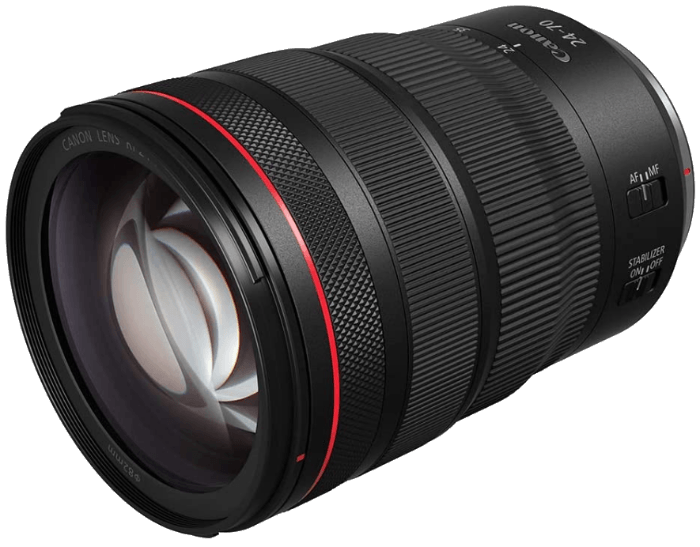
|
(second hand)
Check Price
|
(second hand)
|
Check Price
|
Buy Now!
|
If you buy a product through one of our referral links we will earn a commission (without costing you anything).
Prices last updated on .
As an Amazon Associate, I earn from qualifying purchases. Product prices and availability are accurate as of the date/time indicated and are subject to change. Any price and availability information displayed on Amazon at the time of purchase will apply to the purchase of this product.
Unavailable
Canon RF 50mm F/1.8 STM
Shop Offers
×
Canon RF 50mm F/1.8 STM Deals
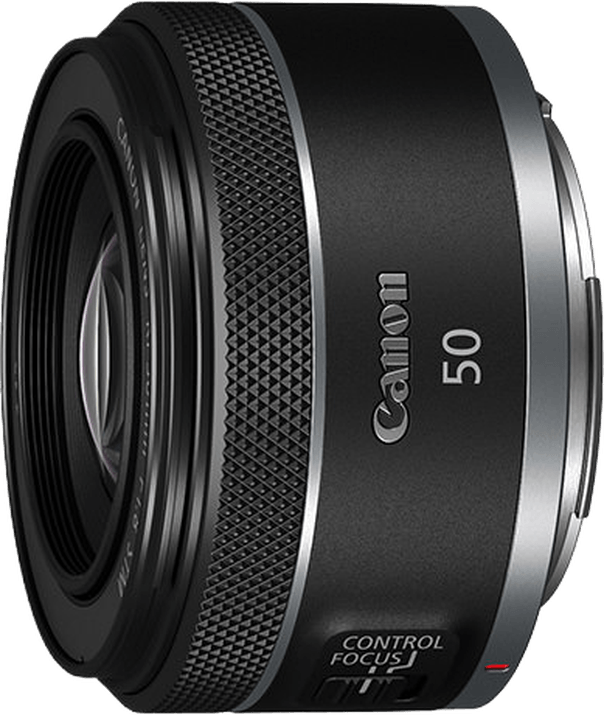
|
(second hand)
Check Price
|
(second hand)
|
Check Price
|
Buy Now!
|
If you buy a product through one of our referral links we will earn a commission (without costing you anything).
Prices last updated on .
As an Amazon Associate, I earn from qualifying purchases. Product prices and availability are accurate as of the date/time indicated and are subject to change. Any price and availability information displayed on Amazon at the time of purchase will apply to the purchase of this product.
Unavailable
Canon RF 24-105mm F/4L IS USM
Canon RF 24-105mm F/4L IS USM
Shop Offers
×
Canon RF 24-105mm F/4L IS USM Deals
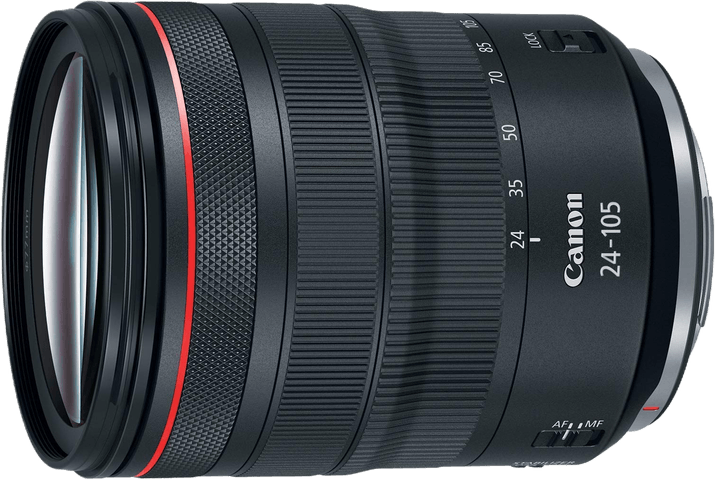
|
(second hand)
Check Price
|
(second hand)
|
Check Price
|
Buy Now!
|
If you buy a product through one of our referral links we will earn a commission (without costing you anything).
Prices last updated on .
As an Amazon Associate, I earn from qualifying purchases. Product prices and availability are accurate as of the date/time indicated and are subject to change. Any price and availability information displayed on Amazon at the time of purchase will apply to the purchase of this product.
Unavailable
What Canon RF Lenses Are Available?
Before we look at the best Canon RF lenses in detail, here’s a quick round-up of why we like them.
If you want to see the best Canon EF lenses for DSLR cameras, click this link.
Best Standard Zoom
Canon RF 24-70mm f/2.8L IS USM
Canon RF 24-70mm f/2.8L IS USM
- Constant f/2.8 maximum aperture
- Weather-sealed
- Up to 5 stops IS
- Smooth, buttery bokeh
Shop Offers
×
Canon RF 24-70mm f/2.8L IS USM Deals

|
(second hand)
Check Price
|
(second hand)
|
Check Price
|
Buy Now!
|
If you buy a product through one of our referral links we will earn a commission (without costing you anything).
Prices last updated on .
As an Amazon Associate, I earn from qualifying purchases. Product prices and availability are accurate as of the date/time indicated and are subject to change. Any price and availability information displayed on Amazon at the time of purchase will apply to the purchase of this product.
Unavailable
Best Value
Canon RF 50mm F/1.8 STM
Canon RF 50mm F/1.8 STM
- Great value prime lens
- Very compact and discreet
- Close focusing
- Distortion-free
Shop Offers
×
Canon RF 50mm F/1.8 STM Deals

|
(second hand)
Check Price
|
(second hand)
|
Check Price
|
Buy Now!
|
If you buy a product through one of our referral links we will earn a commission (without costing you anything).
Prices last updated on .
As an Amazon Associate, I earn from qualifying purchases. Product prices and availability are accurate as of the date/time indicated and are subject to change. Any price and availability information displayed on Amazon at the time of purchase will apply to the purchase of this product.
Unavailable
Best Allrounder
Canon RF 24-105mm F/4L IS USM
Canon RF 24-105mm F/4L IS USM
- Versatile focal length range
- Constant f/4
- Programmable lens ring
- Great bokeh
Shop Offers
×
Canon RF 24-105mm F/4L IS USM Deals

|
(second hand)
Check Price
|
(second hand)
|
Check Price
|
Buy Now!
|
If you buy a product through one of our referral links we will earn a commission (without costing you anything).
Prices last updated on .
As an Amazon Associate, I earn from qualifying purchases. Product prices and availability are accurate as of the date/time indicated and are subject to change. Any price and availability information displayed on Amazon at the time of purchase will apply to the purchase of this product.
Unavailable
Best Fast Lens
Canon RF 50mm F/1.2L USM
Canon RF 50mm F/1.2L USM
- A great "Nifty Fifty"
- Sharp at all apertures
- Perfect for astrophotography
- Faultless AF
Shop Offers
×
Canon RF 50mm F/1.2L USM Deals
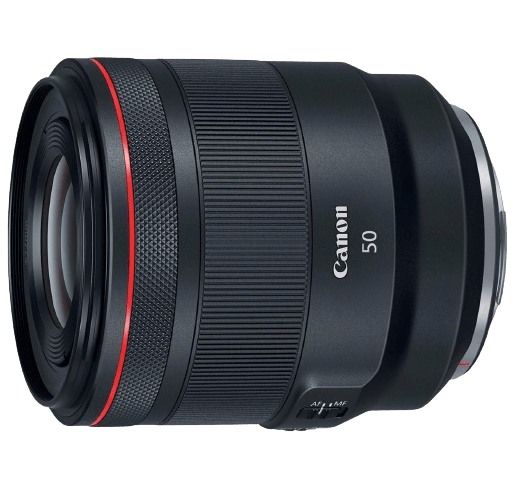
|
(second hand)
Check Price
|
(second hand)
|
Check Price
|
Buy Now!
|
If you buy a product through one of our referral links we will earn a commission (without costing you anything).
Prices last updated on .
As an Amazon Associate, I earn from qualifying purchases. Product prices and availability are accurate as of the date/time indicated and are subject to change. Any price and availability information displayed on Amazon at the time of purchase will apply to the purchase of this product.
Unavailable
Best Portrait Lens
Canon RF 100mm F/2.8L Macro IS USM
Canon RF 100mm F/2.8L Macro IS USM
- Macro focus to 1.4x
- Variable spherical aberration control
- 5 stops IS (8 with IBIS)
- Fast and accurate IS
Shop Offers
×
Canon RF 100mm F/2.8L Macro IS USM Deals
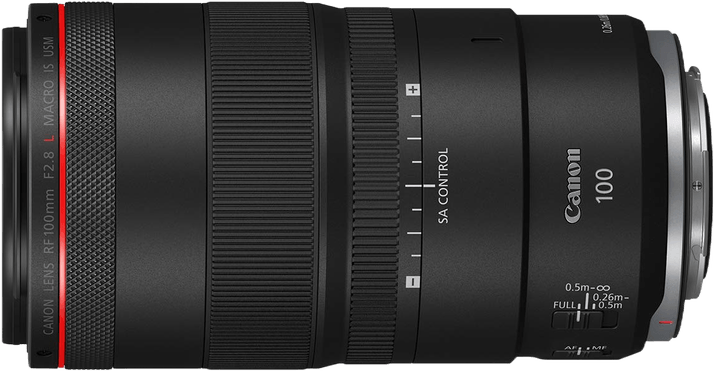
|
(second hand)
Check Price
|
(second hand)
|
Check Price
|
Buy Now!
|
If you buy a product through one of our referral links we will earn a commission (without costing you anything).
Prices last updated on .
As an Amazon Associate, I earn from qualifying purchases. Product prices and availability are accurate as of the date/time indicated and are subject to change. Any price and availability information displayed on Amazon at the time of purchase will apply to the purchase of this product.
Unavailable
Best Wide-Angle
Canon RF 16mm F/2.8 STM
Canon RF 16mm F/2.8 STM
- Amazing value
- Tiny size
- Fast aperture
- Distortion-free ultra-wide
Shop Offers
×
Canon RF 16mm F/2.8 STM Deals
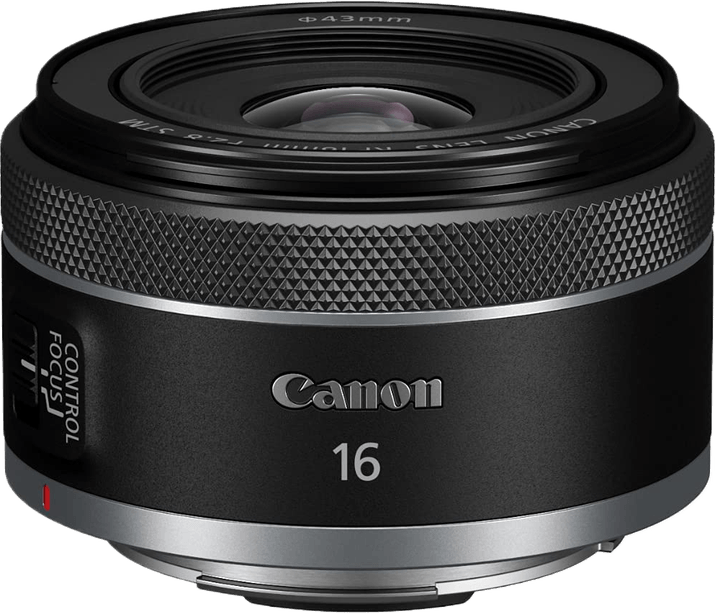
|
(second hand)
Check Price
|
(second hand)
|
Check Price
|
Buy Now!
|
If you buy a product through one of our referral links we will earn a commission (without costing you anything).
Prices last updated on .
As an Amazon Associate, I earn from qualifying purchases. Product prices and availability are accurate as of the date/time indicated and are subject to change. Any price and availability information displayed on Amazon at the time of purchase will apply to the purchase of this product.
Unavailable
Best Long Telephoto
Canon RF 100-400mm F/5.6-8 IS USM
Canon RF 100-400mm F/5.6-8 IS USM
- Super-fast AF
- Close focussing
- Stops down to f/32-45
- IS recognizes panning and adapts
Shop Offers
×
Canon RF 100-400mm F/5.6-8 IS USM Deals
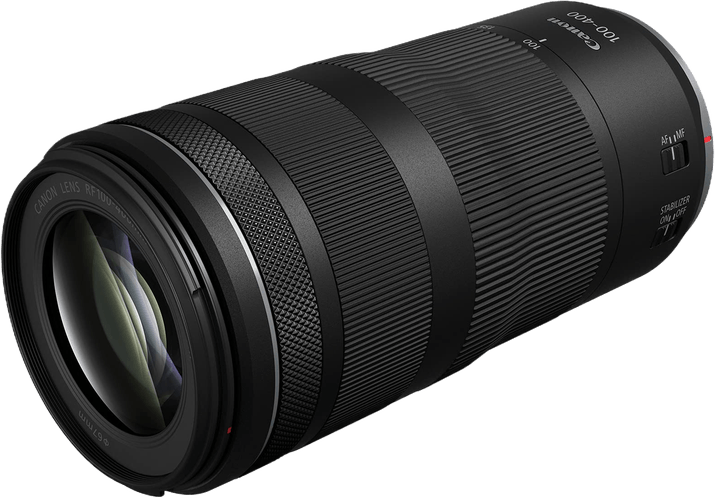
|
(second hand)
Check Price
|
(second hand)
|
Check Price
|
Buy Now!
|
If you buy a product through one of our referral links we will earn a commission (without costing you anything).
Prices last updated on .
As an Amazon Associate, I earn from qualifying purchases. Product prices and availability are accurate as of the date/time indicated and are subject to change. Any price and availability information displayed on Amazon at the time of purchase will apply to the purchase of this product.
Unavailable
Best Rugged Telephoto
Canon RF 70-200mm F/2.8L IS USM
Canon RF 70-200mm F/2.8L IS USM
- Super-fast AF
- Constant f/2.8
- Very sharp optics
- Weather sealed
Shop Offers
×
Canon RF 70-200mm F/2.8L IS USM Deals
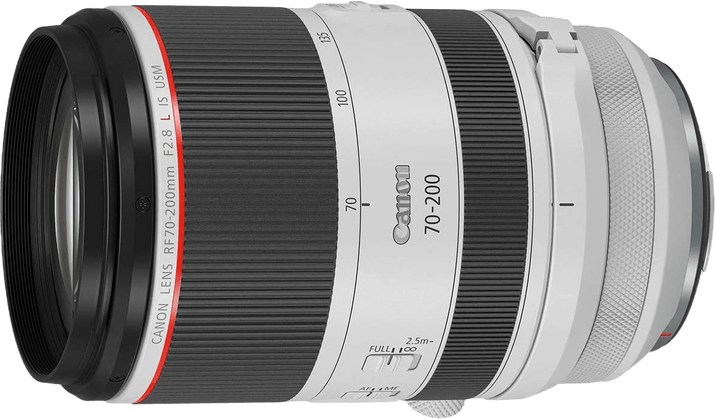
|
(second hand)
Check Price
|
(second hand)
|
Check Price
|
Buy Now!
|
If you buy a product through one of our referral links we will earn a commission (without costing you anything).
Prices last updated on .
As an Amazon Associate, I earn from qualifying purchases. Product prices and availability are accurate as of the date/time indicated and are subject to change. Any price and availability information displayed on Amazon at the time of purchase will apply to the purchase of this product.
Unavailable
Best for Sports
Canon RF 100-500mm F/4.5-7.1L IS USM
Canon RF 100-500mm F/4.5-7.1L IS USM
- Very close focus ability
- Super sharp optics
- Almost distortion-free
- Adjustable zoom ring
Shop Offers
×
Canon RF 100-500mm F/4.5-7.1L IS USM Deals
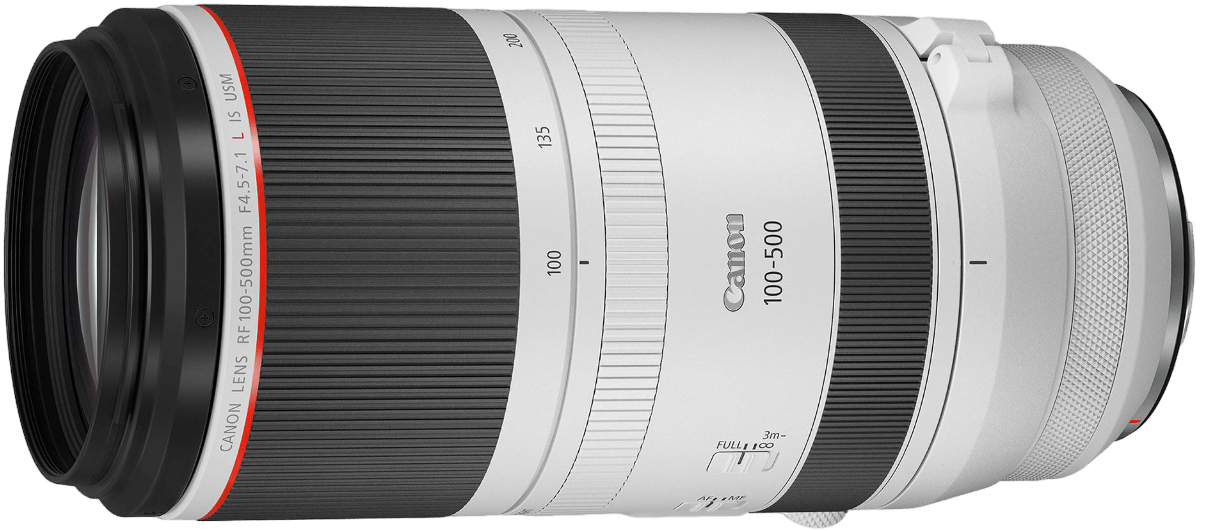
|
(second hand)
Check Price
|
(second hand)
|
Check Price
|
Buy Now!
|
If you buy a product through one of our referral links we will earn a commission (without costing you anything).
Prices last updated on .
As an Amazon Associate, I earn from qualifying purchases. Product prices and availability are accurate as of the date/time indicated and are subject to change. Any price and availability information displayed on Amazon at the time of purchase will apply to the purchase of this product.
Unavailable
Best Macro Lens
Canon RF 85mm F/2 Macro IS STM
Canon RF 85mm F/2 Macro IS STM
- Great value macro lens
- Fast f/2 aperture
- Super-quiet STM AF motor
- Maximum 1:2 magnification
Shop Offers
×
Canon RF 85mm F/2 Macro IS STM Deals
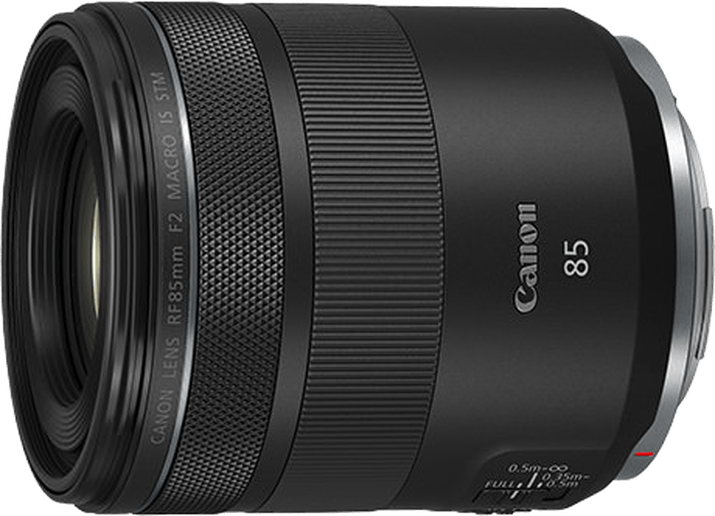
|
(second hand)
Check Price
|
(second hand)
|
Check Price
|
Buy Now!
|
If you buy a product through one of our referral links we will earn a commission (without costing you anything).
Prices last updated on .
As an Amazon Associate, I earn from qualifying purchases. Product prices and availability are accurate as of the date/time indicated and are subject to change. Any price and availability information displayed on Amazon at the time of purchase will apply to the purchase of this product.
Unavailable
Most Versatile Lens
Canon RF 24-240mm f/4.0-6.3 IS USM Zoom Lens
Canon RF 24-240mm f/4.0-6.3 IS USM Zoom Lens
- Versatile focal lengths
- Very sharp images
- Compact size
- 5 stops IS
Shop Offers
×
Canon RF 24-240mm f/4.0-6.3 IS USM Zoom Lens Deals
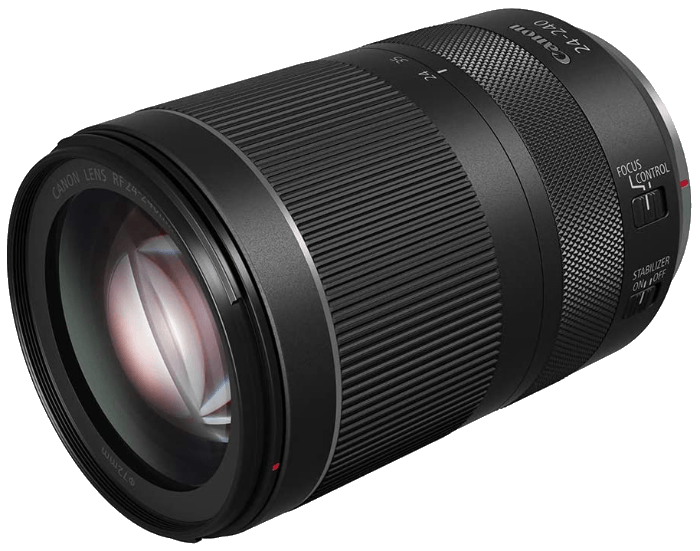
|
(second hand)
Check Price
|
(second hand)
|
Check Price
|
Buy Now!
|
If you buy a product through one of our referral links we will earn a commission (without costing you anything).
Prices last updated on .
As an Amazon Associate, I earn from qualifying purchases. Product prices and availability are accurate as of the date/time indicated and are subject to change. Any price and availability information displayed on Amazon at the time of purchase will apply to the purchase of this product.
Unavailable
1. Canon RF 24-70mm f/2.8L IS USM
Shop Offers
×
Canon RF 24-70mm f/2.8L IS USM Deals

|
(second hand)
Check Price
|
(second hand)
|
Check Price
|
Buy Now!
|
If you buy a product through one of our referral links we will earn a commission (without costing you anything).
Prices last updated on .
As an Amazon Associate, I earn from qualifying purchases. Product prices and availability are accurate as of the date/time indicated and are subject to change. Any price and availability information displayed on Amazon at the time of purchase will apply to the purchase of this product.
Unavailable

Shop Offers
×
Canon RF 24-70mm f/2.8L IS USM Deals

|
(second hand)
Check Price
|
(second hand)
|
Check Price
|
Buy Now!
|
If you buy a product through one of our referral links we will earn a commission (without costing you anything).
Prices last updated on .
As an Amazon Associate, I earn from qualifying purchases. Product prices and availability are accurate as of the date/time indicated and are subject to change. Any price and availability information displayed on Amazon at the time of purchase will apply to the purchase of this product.
Unavailable
|
Lens Type |
Lens Type
Zoom Lens
|
|
Maximum Aperture |
Maximum Aperture
f/ 2.8
|
|
Focal Length Range |
Focal Length Range
24-70 mm
|
|
Image Stabilization |
Image Stabilization
|
Canon RF 24-70mm f/2.8L IS USM
I find this Canon RF 24-70mm /2.8L lens an interesting proposition. It covers the lovely 24mm wide-angle, and goes beyond the nifty fifty standard lens focal length. But then I wonder, does it go far enough? Well, I think 70mm is just about OK for portraits. So in the end, you have a constant f/2.8 maximum aperture for a number of really useful focal lengths.
And what makes this lens even more appealing is that it delivers super-creamy bokeh at all focal lengths. But especially at 70mm. And this is where you’d want it for portrait work. So what you get is a standard lens with a pretty fast f/2.8. But also one that you can zoom out for that more inclusive 24mm view. Or just get a bit closer with the 70mm. And with 5 stops of IS, that f/2.8 looks even more inviting.
Nine rounded iris blades help with this bokeh. They also produce appealing stars when capturing bright light sources like the sun.
The programmable control ring on this lens has clicks on it. This makes it feel like an aperture ring of old. It would also be helpful if you assign exposure compensation or ISO to it. As an L series lens, all the controls feel sturdy and of good quality.
The RF 24-70mm f/2.8L IS USM lens produces sharp images across the focal lengths, and even when it’s wide open. For videographers, there’s only slight focus breathing at 24mm. It’s a high-quality standard zoom lens for everyday use.
2. Canon RF 50mm f/1.8 STM
Shop Offers
×
Canon RF 50mm F/1.8 STM Deals

|
(second hand)
Check Price
|
(second hand)
|
Check Price
|
Buy Now!
|
If you buy a product through one of our referral links we will earn a commission (without costing you anything).
Prices last updated on .
As an Amazon Associate, I earn from qualifying purchases. Product prices and availability are accurate as of the date/time indicated and are subject to change. Any price and availability information displayed on Amazon at the time of purchase will apply to the purchase of this product.
Unavailable

Shop Offers
×
Canon RF 50mm F/1.8 STM Deals

|
(second hand)
Check Price
|
(second hand)
|
Check Price
|
Buy Now!
|
If you buy a product through one of our referral links we will earn a commission (without costing you anything).
Prices last updated on .
As an Amazon Associate, I earn from qualifying purchases. Product prices and availability are accurate as of the date/time indicated and are subject to change. Any price and availability information displayed on Amazon at the time of purchase will apply to the purchase of this product.
Unavailable
|
Lens Type |
Lens Type
Prime Lens
|
|
Maximum Aperture |
Maximum Aperture
f/ 1.8
|
|
Focal Length Range |
Focal Length Range
50 mm
|
|
Image Stabilization |
Image Stabilization
|
Put this little RF 50mm f/1.8 lens on your EOS R camera, and you’ll be amazed at how discreet it is. The “nifty fifty” is a long-time favorite of photographers. It used to be called the “standard lens” because it was the lens that came with your SLR camera. This was before the days of cheap zoom lenses. A 50mm lens gives roughly the angle of view of the human eye. So everything looks familiar.
You can pay a lot of money for a faster 50mm (see the listing below). But if you’re looking to expand your lens collection with a prime lens, this is a great place to start. The compact body means there isn’t room for a focus ring and a control ring. So instead, Canon makes the Auto/Manual focus switch instead a way of switching between control ring and focus. This is a (literally) neat solution.
Images are crisp and sharp across the aperture range. Bokeh is good, but not excellent. And it is better at close ranges. Although this isn’t a macro lens, it will get nice and close for some impressive close-up work.
It’s great value for a neat little lens.
3. Canon RF 24-105mm f/4L IS USM
Shop Offers
×
Canon RF 24-105mm F/4L IS USM Deals

|
(second hand)
Check Price
|
(second hand)
|
Check Price
|
Buy Now!
|
If you buy a product through one of our referral links we will earn a commission (without costing you anything).
Prices last updated on .
As an Amazon Associate, I earn from qualifying purchases. Product prices and availability are accurate as of the date/time indicated and are subject to change. Any price and availability information displayed on Amazon at the time of purchase will apply to the purchase of this product.
Unavailable

Shop Offers
×
Canon RF 24-105mm F/4L IS USM Deals

|
(second hand)
Check Price
|
(second hand)
|
Check Price
|
Buy Now!
|
If you buy a product through one of our referral links we will earn a commission (without costing you anything).
Prices last updated on .
As an Amazon Associate, I earn from qualifying purchases. Product prices and availability are accurate as of the date/time indicated and are subject to change. Any price and availability information displayed on Amazon at the time of purchase will apply to the purchase of this product.
Unavailable
|
Lens Type |
Lens Type
Zoom Lens
|
|
Maximum Aperture |
Maximum Aperture
f/ 4.0
|
|
Focal Length Range |
Focal Length Range
24-105 mm
|
|
Image Stabilization |
Image Stabilization
|
Canon RF 24-105mm F/4L IS USM
It might seem odd at first to pay so much money for this RF 24-105mm lens with a maximum f/4 aperture. But it has built-in lens image stabilization. And many EOS R cameras have in-body IS. Combine this with very good maximum ISO ratings and you have much less of a problem with the relatively slow maximum aperture.
The 24-105mm range of this lens is excellent. In the days of prime lenses, a 24mm was the widest you’d get without being ultra-specialist. And 105mm is a handy level of telephoto. It’s a super portrait lens, offering creamy bokeh and pin-sharp accuracy for detail.
The lens has three rings. In addition to the focus and zoom, there is a third control ring. This changes exposure composition by default. But it can be programmed in-camera to a whole range of functions. It’s handy for a quick change of ISO, for instance.
The EOS R5 often comes with this lens as a kit lens. But it is as far removed as you could wish from what we normally think of with a kit lens. You could go weeks using this every day without feeling the need to take it off.
Image quality is bright and crisp across the zoom range and apertures. If video is your thing, there is no sign of focus breathing. It’s a great lens, and as a kit lens, it offers exceptional value.
4. Canon RF 50mm f/1.2L USM
Shop Offers
×
Canon RF 50mm F/1.2L USM Deals
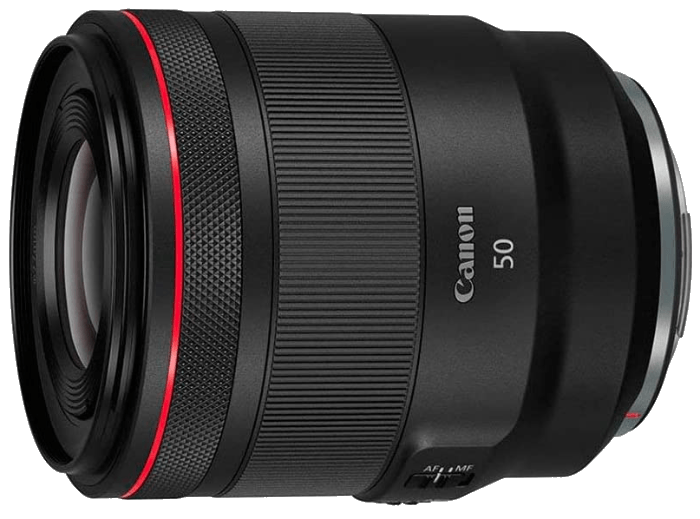
|
(second hand)
Check Price
|
(second hand)
|
Check Price
|
Buy Now!
|
If you buy a product through one of our referral links we will earn a commission (without costing you anything).
Prices last updated on .
As an Amazon Associate, I earn from qualifying purchases. Product prices and availability are accurate as of the date/time indicated and are subject to change. Any price and availability information displayed on Amazon at the time of purchase will apply to the purchase of this product.
Unavailable

Shop Offers
×
Canon RF 50mm F/1.2L USM Deals

|
(second hand)
Check Price
|
(second hand)
|
Check Price
|
Buy Now!
|
If you buy a product through one of our referral links we will earn a commission (without costing you anything).
Prices last updated on .
As an Amazon Associate, I earn from qualifying purchases. Product prices and availability are accurate as of the date/time indicated and are subject to change. Any price and availability information displayed on Amazon at the time of purchase will apply to the purchase of this product.
Unavailable
|
Lens Type |
Lens Type
Prime Lens
|
|
Maximum Aperture |
Maximum Aperture
f/ 1.2
|
|
Focal Length Range |
Focal Length Range
50 mm
|
|
Image Stabilization |
Image Stabilization
|
The Canon RF 50mm f/1.2L USM is a fine example of why a lens like this is popular. Super-fast at f/1.2, it allows handheld shooting in low light. It impresses with its sharpness. The narrow depth of field at f/1.2 produces creamy bokeh, with pin-sharp focus on the subject. These qualities help to make it a great choice for astrophotography.
There are two rings on the RF 50mm f/1.2L USM. The second is the control ring, which can be programmed to control a range of functions of exposure parameters. This is a big lens for a 50mm. It’s certainly no pancake lens. But it delivers exceptional quality with your EOS R series camera.
It’s a lot more expensive than the top choice 50mm in this review. It is clearly a more substantial lens. It will stand up to more hard use. So it’s a good choice for you if you are going to use it professionally—all day, every day.
5. Canon RF 100mm f/2.8L IS USM Macro
Shop Offers
×
Canon RF 100mm F/2.8L Macro IS USM Deals

|
(second hand)
Check Price
|
(second hand)
|
Check Price
|
Buy Now!
|
If you buy a product through one of our referral links we will earn a commission (without costing you anything).
Prices last updated on .
As an Amazon Associate, I earn from qualifying purchases. Product prices and availability are accurate as of the date/time indicated and are subject to change. Any price and availability information displayed on Amazon at the time of purchase will apply to the purchase of this product.
Unavailable

Shop Offers
×
Canon RF 100mm F/2.8L Macro IS USM Deals

|
(second hand)
Check Price
|
(second hand)
|
Check Price
|
Buy Now!
|
If you buy a product through one of our referral links we will earn a commission (without costing you anything).
Prices last updated on .
As an Amazon Associate, I earn from qualifying purchases. Product prices and availability are accurate as of the date/time indicated and are subject to change. Any price and availability information displayed on Amazon at the time of purchase will apply to the purchase of this product.
Unavailable
|
Lens Type |
Lens Type
Prime Lens
|
|
Maximum Aperture |
Maximum Aperture
f/ 2.8
|
|
Focal Length Range |
Focal Length Range
100 mm
|
|
Image Stabilization |
Image Stabilization
|
Canon RF 100mm F/2.8L Macro IS USM
This Canon RF 100mm f/2.8L lens is notable for its super fast ability to focus from infinity to macro, quickly and accurately. It will focus down close enough to give 1.4x magnification. But it’s not just for bees and flowers. 100mm is a favorite length for portrait work. And this 100mm is well-suited for portraits.
Not only does it have super-smooth bokeh, helped by its nine rounded iris blades, it also has adjustable spherical aberration (SA). This is controlled by a clearly marked ring on the lens. SA creates a soft focus effect. Not out of focus, but soft. Unlike a filter you have to add or remove, this can immediately be applied or not.
The lens is sharp and accurate, with no discernible distortion. It has built-in IS. When used with in-body stabilization on a camera like the Canon EOS R5, it gives up to eight stops IS. Macro shots are incredibly sharp, and can be very stylish when used wide open, to really make the subject pop.
Like all RF lenses, you also have the programmable control ring. If you want a portrait or macro lens, you won’t be disappointed with the RF 100mm f/2.8L lens on your EOS R camera.
6. Canon RF 16mm f/2.8 STM
Shop Offers
×
Canon RF 16mm F/2.8 STM Deals

|
(second hand)
Check Price
|
(second hand)
|
Check Price
|
Buy Now!
|
If you buy a product through one of our referral links we will earn a commission (without costing you anything).
Prices last updated on .
As an Amazon Associate, I earn from qualifying purchases. Product prices and availability are accurate as of the date/time indicated and are subject to change. Any price and availability information displayed on Amazon at the time of purchase will apply to the purchase of this product.
Unavailable

Shop Offers
×
Canon RF 16mm F/2.8 STM Deals

|
(second hand)
Check Price
|
(second hand)
|
Check Price
|
Buy Now!
|
If you buy a product through one of our referral links we will earn a commission (without costing you anything).
Prices last updated on .
As an Amazon Associate, I earn from qualifying purchases. Product prices and availability are accurate as of the date/time indicated and are subject to change. Any price and availability information displayed on Amazon at the time of purchase will apply to the purchase of this product.
Unavailable
|
Lens Type |
Lens Type
Prime Lens
|
|
Maximum Aperture |
Maximum Aperture
f/ 2.8
|
|
Focal Length Range |
Focal Length Range
16 mm
|
|
Image Stabilization |
Image Stabilization
|
If you’ve never used a 16mm lens, then you’ve missed out on a treat. When my photographer daughter first used my EF 16-35mm f/4L lens, she hated it. Then she saw the possibilities of a 16mm and now she loves it.
This little Canon RF 16mm f/2.8 lens gives beautifully sharp results, and manages to pack it all into a tiny lens. The 7 rounded iris blades produce nice stars around the sun or bright lights. But there’s almost no flare. And you’ll be shooting lots of pictures of the sun, because the sky is so expansive and beautiful through a 16mm lens.
I use my 16-35mm lens for real estate photography. But truly, the 17-35mm focal lengths are wasted. And even with a tripod, I’d love the extra stop that this f/2.8 lens would give me. And my back would appreciate its lightness.
This is a lot of lens for the money. And the results are excellent.
7. Canon RF 100-400mm f/5.6-8 IS USM
Shop Offers
×
Canon RF 100-400mm F/5.6-8 IS USM Deals

|
(second hand)
Check Price
|
(second hand)
|
Check Price
|
Buy Now!
|
If you buy a product through one of our referral links we will earn a commission (without costing you anything).
Prices last updated on .
As an Amazon Associate, I earn from qualifying purchases. Product prices and availability are accurate as of the date/time indicated and are subject to change. Any price and availability information displayed on Amazon at the time of purchase will apply to the purchase of this product.
Unavailable

Shop Offers
×
Canon RF 100-400mm F/5.6-8 IS USM Deals

|
(second hand)
Check Price
|
(second hand)
|
Check Price
|
Buy Now!
|
If you buy a product through one of our referral links we will earn a commission (without costing you anything).
Prices last updated on .
As an Amazon Associate, I earn from qualifying purchases. Product prices and availability are accurate as of the date/time indicated and are subject to change. Any price and availability information displayed on Amazon at the time of purchase will apply to the purchase of this product.
Unavailable
|
Lens Type |
Lens Type
Zoom Lens
|
|
Maximum Aperture |
Maximum Aperture
f/ 8.0
|
|
Focal Length Range |
Focal Length Range
100-400 mm
|
|
Image Stabilization |
Image Stabilization
|
Canon RF 100-400mm F/5.6-8 IS USM
The focal length range of this RF 100-400mm lens takes you from portrait length to sports photography. But, with some limitations. It is relatively slow, so you will appreciate the six stops of IS that can be achieved with in-body IS in some EOS R cameras. Especially as the lens recognizes panning action and adapts the IS in light of that.
The sports photographer will appreciate the lightning fast AF. And if 400mm isn’t enough for you, then you can use it with a 2x extender, without losing any IS or AF functionality.
It’s not a macro lens, but the RF 100-400mm can focus as close as 2.9 ft (200mm). This will give you 0.41x magnification at 400mm. And the quality of the optics is such that you won’t have to worry about sharpness.
The bokeh you get from this lens is consistently smooth and buttery. Of course, it’s at its best at 400mm. But given that means f/8, the bokeh is very pleasing. Nine curved blades in the iris provide great starbursts around the sun and other bright light sources.
This is a surprisingly compact lens given its capabilities. It provides great image quality and great performance at a modest price.
8. Canon RF 70-200mm f/2.8L IS USM
Shop Offers
×
Canon RF 70-200mm F/2.8L IS USM Deals

|
(second hand)
Check Price
|
(second hand)
|
Check Price
|
Buy Now!
|
If you buy a product through one of our referral links we will earn a commission (without costing you anything).
Prices last updated on .
As an Amazon Associate, I earn from qualifying purchases. Product prices and availability are accurate as of the date/time indicated and are subject to change. Any price and availability information displayed on Amazon at the time of purchase will apply to the purchase of this product.
Unavailable

Shop Offers
×
Canon RF 70-200mm F/2.8L IS USM Deals

|
(second hand)
Check Price
|
(second hand)
|
Check Price
|
Buy Now!
|
If you buy a product through one of our referral links we will earn a commission (without costing you anything).
Prices last updated on .
As an Amazon Associate, I earn from qualifying purchases. Product prices and availability are accurate as of the date/time indicated and are subject to change. Any price and availability information displayed on Amazon at the time of purchase will apply to the purchase of this product.
Unavailable
|
Lens Type |
Lens Type
Zoom Lens
|
|
Maximum Aperture |
Maximum Aperture
f/ 2.8
|
|
Focal Length Range |
Focal Length Range
70-200 mm
|
|
Image Stabilization |
Image Stabilization
|
Canon RF 70-200mm F/2.8L IS USM
It’s a revelation using one of Canon’s L-series f/2.8 70-200mm lenses. The RF version is additionally remarkable because it is so compact. Although it comes with a tripod collar, as you’d expect, it hardly needs it.
The quality of the optics is superb. It’s sharp and accurate with little barrel or pin-cushion distortion. Your EOS R series camera will correct for this anyway. And the autofocus is fast and very accurate.
The lens has more switches than a non-L series zoom. As well as AF/MF and IS, there is a 3-way IS switch. This selects between normal, panning, and battery-saving normal.
As you’d expect from an L series, the lens is weather sealed. You won’t need to panic about dust and water, but of course, it’s not submersible. The programmable control ring is nearest the mount. Not the other end, as is the case for some of the shorter-barreled lenses.
This lens is not cheap, but if you intend to use it day after day, it’s a great choice. The classic gray color might make you think of sports or journalism. But this makes a super portrait lens because the f/2.8 can isolate your subject against foreground and background.
9. Canon RF 100-500mm f/4.5-7.1L IS USM
Shop Offers
×
Canon RF 100-500mm F/4.5-7.1L IS USM Deals

|
(second hand)
Check Price
|
(second hand)
|
Check Price
|
Buy Now!
|
If you buy a product through one of our referral links we will earn a commission (without costing you anything).
Prices last updated on .
As an Amazon Associate, I earn from qualifying purchases. Product prices and availability are accurate as of the date/time indicated and are subject to change. Any price and availability information displayed on Amazon at the time of purchase will apply to the purchase of this product.
Unavailable

Shop Offers
×
Canon RF 100-500mm F/4.5-7.1L IS USM Deals

|
(second hand)
Check Price
|
(second hand)
|
Check Price
|
Buy Now!
|
If you buy a product through one of our referral links we will earn a commission (without costing you anything).
Prices last updated on .
As an Amazon Associate, I earn from qualifying purchases. Product prices and availability are accurate as of the date/time indicated and are subject to change. Any price and availability information displayed on Amazon at the time of purchase will apply to the purchase of this product.
Unavailable
|
Lens Type |
Lens Type
Zoom
|
|
Maximum Aperture |
Maximum Aperture
f/ 4.5
|
|
Focal Length Range |
Focal Length Range
100-500 mm
|
|
Image Stabilization |
Image Stabilization
|
Canon RF 100-500mm F/4.5-7.1L IS USM
The RF 100-500mm L series lens covers two favorite focal lengths. 100mm is a common portrait lens length. And 500mm is a popular choice for sports photography. With a wide zoom range, there are always compromises. The maximum aperture at 100mm, for instance, is not perfect for portraits. And at 200mm, it’s f/5.
But for that compromise, you get a lens that performs well at all focal lengths. I occasionally take pictures at soccer games, and if you only have, say, a 200mm lens, you will be frustrated when the action moves to the other end of the field.
The lens has three IS modes. There’s normal mode and the second mode is for when the camera is panning. The third mode only engages when the shutter is pressed in order to save battery. Other switches allow AF on/off, IS on/off, and AF limiting. This can prevent the lens focusing closer than 10 ft (3 m) if it’s struggling to lock on. That being said, the AF is very fast and accurate, even from the extremes.
There are four rings—zoom, manual focus, zoom stiffness, and the RF programmable ring. If you find the zoom creeping, you can tighten the ring. Some people find the control ring a little close to the lens mount to fall easily to hand.
Otherwise, this lens produces pin-sharp results across a wide range of focal lengths. As a bonus, you can get some excellent close-up shots, even at full zoom and wide open.
10. Canon RF 85mm f/2 Macro IS USM
Shop Offers
×
Canon RF 85mm F/2 Macro IS STM Deals

|
(second hand)
Check Price
|
(second hand)
|
Check Price
|
Buy Now!
|
If you buy a product through one of our referral links we will earn a commission (without costing you anything).
Prices last updated on .
As an Amazon Associate, I earn from qualifying purchases. Product prices and availability are accurate as of the date/time indicated and are subject to change. Any price and availability information displayed on Amazon at the time of purchase will apply to the purchase of this product.
Unavailable

Shop Offers
×
Canon RF 85mm F/2 Macro IS STM Deals

|
(second hand)
Check Price
|
(second hand)
|
Check Price
|
Buy Now!
|
If you buy a product through one of our referral links we will earn a commission (without costing you anything).
Prices last updated on .
As an Amazon Associate, I earn from qualifying purchases. Product prices and availability are accurate as of the date/time indicated and are subject to change. Any price and availability information displayed on Amazon at the time of purchase will apply to the purchase of this product.
Unavailable
|
Maximum Aperture |
Maximum Aperture
f/ 2.0
|
|
Focal Length Range |
Focal Length Range
85 mm
|
|
Image Stabilization |
Image Stabilization
|
Canon RF 85mm F/2 Macro IS STM
If you want a genuine specialist portrait lens, then this Canon RF 85mm f/2 is a great place to start looking. If my memory serves me correctly, 85mm used to be the go-to length for portraits. This is back in the day before zoom lenses were common or affordable. At 85mm, you hit the sweet spot between flattering facial rendition and adequate distance from your subject.
Another weapon in this lens’s armory is its macro capabilities. A maximum magnification of 1:2 means that an image is half of the actual size. So a picture of a 35mm negative fills half the frame. And as this lens has pin-sharp optics at all apertures. This means, in practice, you can get sharp close-ups with ease. Bear in mind that, at f/2, there’s not much depth of field.
One of the three buttons on the lens barrel allows you to limit the AF. You choose full, from 19.6″ (0.5 m) to infinity, or only between the minimum 13.7″ (35 cm) and 19.6″ (50 cm). This means that if you’re just doing macro work, the lens knows to restrict itself to those distances. In any case, AF is very fast and extremely quiet thanks to the STM motor.
Although this isn’t a cheap lens by consumer-level standards, it is when compared to an L series lens. You could easily find that this does all you want and more for a fraction of the cost of the pro-level equivalent.
11. Canon RF 24-240mm f/2 Macro IS USM
Shop Offers
×
Canon RF 24-240mm f/4.0-6.3 IS USM Zoom Lens Deals

|
(second hand)
Check Price
|
(second hand)
|
Check Price
|
Buy Now!
|
If you buy a product through one of our referral links we will earn a commission (without costing you anything).
Prices last updated on .
As an Amazon Associate, I earn from qualifying purchases. Product prices and availability are accurate as of the date/time indicated and are subject to change. Any price and availability information displayed on Amazon at the time of purchase will apply to the purchase of this product.
Unavailable

Shop Offers
×
Canon RF 24-240mm f/4.0-6.3 IS USM Zoom Lens Deals

|
(second hand)
Check Price
|
(second hand)
|
Check Price
|
Buy Now!
|
If you buy a product through one of our referral links we will earn a commission (without costing you anything).
Prices last updated on .
As an Amazon Associate, I earn from qualifying purchases. Product prices and availability are accurate as of the date/time indicated and are subject to change. Any price and availability information displayed on Amazon at the time of purchase will apply to the purchase of this product.
Unavailable
|
Lens Type |
Lens Type
Zoom Lens
|
|
Maximum Aperture |
Maximum Aperture
f/ 4-6.3
|
|
Focal Length Range |
Focal Length Range
24-240 mm
|
|
Image Stabilization |
Image Stabilization
|
Canon RF 24-240mm f/4.0-6.3 IS USM Zoom Lens
This Canon RF 24-240mm f/2 lens is another one without the L badge, but it’s still a lens that will give you excellent results. The zoom range will keep you happy from the street to casual sports photography. Along the way, you can take portraiture and landscape photographs.
As well as the IS on/off switch, you have a selector switch for the second ring. This switches it between a programmable control ring and manual focus. This is a sensible setup because manual focus will be an occasional need. Especially since the AF on the lens is fast and accurate.
Image quality is great across the very wide focal length range. A 10x zoom is a remarkable thing to use. Although the compromise here is in aperture, at 24mm it is the same as the L series 24-105. And with five stops of IS available, it becomes less of an issue.
This could be a lens you rarely take off your camera. It delivers great results at a very attractive price.
Conclusion
There’s no doubt that the RF-mount is gaining in strength. Canon are clearly committed to it. Most of their iconic and popular EF-mount lenses now have RF versions. And in many cases, they perform better than the original. They also all take advantage of the programmable control ring to add flexibility not possible with a DSLR.
Hopefully this roundup of Canon RF lenses will help you steer your way through the offerings and choose the perfect lens for you. Here’s our top pick:
Our Top 3 Choices for The Best Canon RF Lenses
Canon RF 24-70mm f/2.8L IS USM
Canon RF 24-70mm f/2.8L IS USM
Shop Offers
×
Canon RF 24-70mm f/2.8L IS USM Deals

|
(second hand)
Check Price
|
(second hand)
|
Check Price
|
Buy Now!
|
If you buy a product through one of our referral links we will earn a commission (without costing you anything).
Prices last updated on .
As an Amazon Associate, I earn from qualifying purchases. Product prices and availability are accurate as of the date/time indicated and are subject to change. Any price and availability information displayed on Amazon at the time of purchase will apply to the purchase of this product.
Unavailable
Canon RF 50mm F/1.8 STM
Shop Offers
×
Canon RF 50mm F/1.8 STM Deals

|
(second hand)
Check Price
|
(second hand)
|
Check Price
|
Buy Now!
|
If you buy a product through one of our referral links we will earn a commission (without costing you anything).
Prices last updated on .
As an Amazon Associate, I earn from qualifying purchases. Product prices and availability are accurate as of the date/time indicated and are subject to change. Any price and availability information displayed on Amazon at the time of purchase will apply to the purchase of this product.
Unavailable
Canon RF 24-105mm F/4L IS USM
Canon RF 24-105mm F/4L IS USM
Shop Offers
×
Canon RF 24-105mm F/4L IS USM Deals

|
(second hand)
Check Price
|
(second hand)
|
Check Price
|
Buy Now!
|
If you buy a product through one of our referral links we will earn a commission (without costing you anything).
Prices last updated on .
As an Amazon Associate, I earn from qualifying purchases. Product prices and availability are accurate as of the date/time indicated and are subject to change. Any price and availability information displayed on Amazon at the time of purchase will apply to the purchase of this product.
Unavailable


























